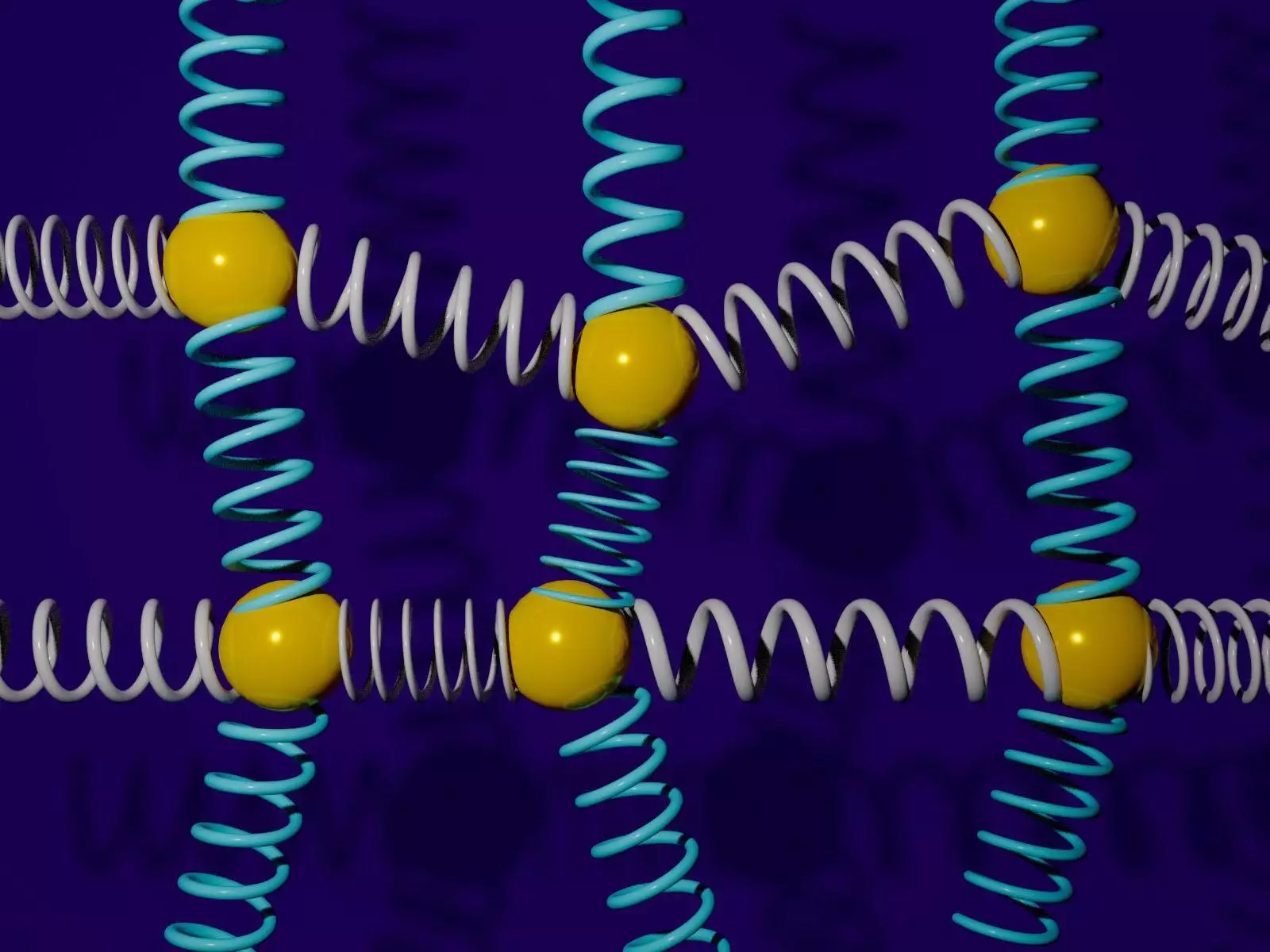The concept of “coupled oscillations” may not be a household term for many, but its significance in the realm of science and engineering cannot be overstated. From mechanical systems to gravitational interactions, coupled harmonic oscillators are ubiquitous in nature. Recently, a groundbreaking quantum algorithm developed by researchers from Pacific Northwest National Laboratory, Google Quantum AI, and Macquarie University has revolutionized the simulation of complex systems of interacting masses and springs on quantum computers.
Traditionally represented by a ball and spring model, coupled oscillatory systems grow in complexity as more oscillators are introduced. However, with the introduction of a new quantum algorithm, the simulation of these intricate systems has become faster and more efficient than ever before. By mapping the dynamics of coupled oscillators to a Schrödinger equation and leveraging Hamiltonian methods, researchers are able to simulate these systems using exponentially fewer operations, thereby accelerating the pace of scientific exploration in various fields.
The innovative algorithm developed by Nathan Wiebe and his team not only showcases an exponential speedup over classical algorithms but also raises thought-provoking questions about the fundamental nature of computational power. By demonstrating that coupled harmonic oscillators can simulate an arbitrary quantum computer, the researchers have established a profound connection between quantum dynamics and the humble harmonic oscillator. This connection not only sheds light on the capabilities of quantum computers but also challenges the notion of classical computers being on par with their quantum counterparts.
One of the most intriguing aspects of this research is the exploration of whether the newfound algorithm can offer an exponential speedup across all ordinary algorithms. By probing the theoretical constraints surrounding the calculation of dynamics in coupled oscillatory systems, the researchers have paved the way for a deeper understanding of the computational differences between classical and quantum computers. The evidence accumulated over the years overwhelmingly suggests that quantum computers possess unique capabilities that transcend the limitations of classical computing.
The development of a quantum algorithm for simulating coupled oscillators marks a significant milestone in the field of quantum computing. Not only does this algorithm provide an exponential speedup over classical methods, but it also offers valuable insights into the intricate relationship between quantum dynamics and classical systems. As researchers continue to push the boundaries of computational science, the implications of this work are poised to shape the future of quantum computing and its applications in various disciplines.



Leave a Reply